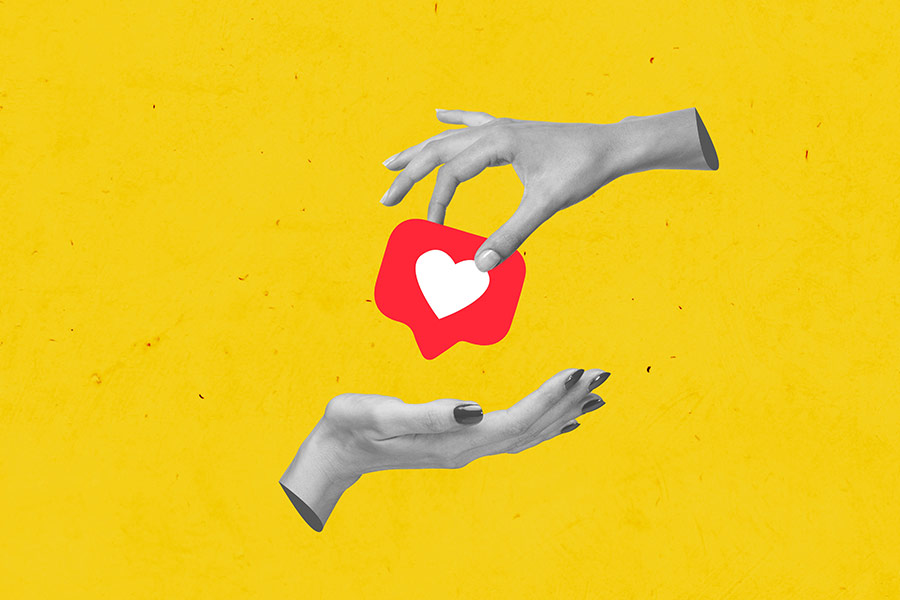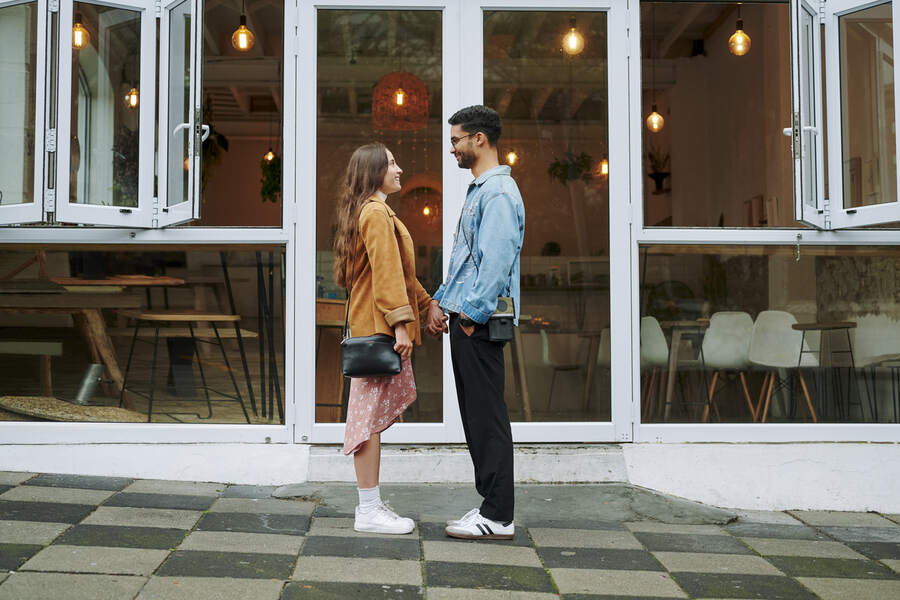Swipe and get ghosted? Settle for a situationship? Is this my ‘forever’, or is there something better?
Love in the Instagram era is a mix of seen-zoned texts, strategic soft launches, and algorithmic romance. Dating apps promise options, but do they deliver connection… or just decision fatigue? In a world where love is measured through ‘collab posts’, what does romance really look like? My Kolkata speaks to members of the city’s Gen Z to find out.
For Bryna Das, who runs a social media agency titled Studio Bry, an online profile goes a long way in establishing credibility while revealing a person’s lifestyle. “We instantly know a person is ‘safe’ if there are mutual followers and they post often, while a cryptic profile can be deemed creepy. While it is sad, social media is bound to dictate a lot in a relationship today, given how it has become a part of everyone’s daily lives,” she says.
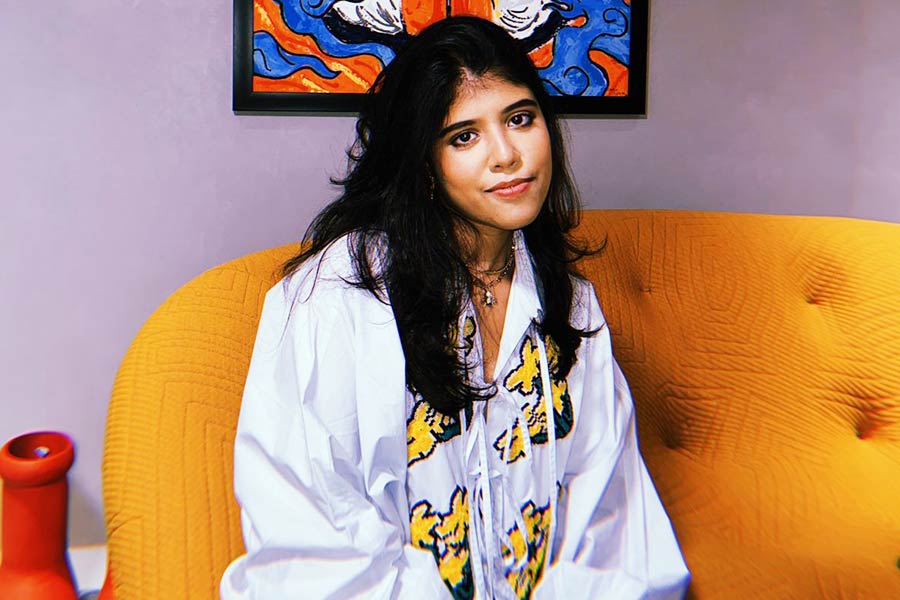
‘Social media is bound to dictate a lot in a relationship today, given how it has become a part of everyone’s daily lives,’ says Bryna Das
Aakash Gurbani, a city-based therapist, believes that social media can be misleading too, since most people only represent their good side. “I have seen people, including myself, creating carefully crafted profiles – presenting a particular image of them. This makes way for a trap of expectations, where we see the online personas as all that they are. We’re not meeting people, just their profiles,” he sighs.
Gurbani confesses that as someone who equates dating with building a relationship through patience, labour and authenticity, the culture of instant gratification can often do more harm than good. “On the surface, it might seem like finding a potential partner is easier on an app. But, choice and convenience has only made it harder to find anything genuine. Didn’t find someone interesting in the first five minutes? Ghosting them is easy, because it seems like there are plenty of fish in the sea. People aren’t willing to put in the hard work.”

Aakash Gurbani, a city-based therapist, believes social media can be misleading, since most people only represent their better side online Shutterstock (representational image)
Actress Angana Roy attributes this to the growing loneliness amongst the youth, with everyone trying to mitigate it online. She believes that it is important to create a clear demarcation between online and real life. “For me, social media is largely about work and branding. It can be a useful tool to advance your career. But, if you spend disproportionate time thinking about your likes and your DMs, it’s bound to start affecting your relationships with people,” she adds.
For her, one of the biggest turn-offs about trying to find romance online is the superficial nature of perception. “The disproportionate emphasis on someone’s visual appearance while seeking an online relationship can really cloud your judgement. So much effort goes into making small talk with a stranger, just to gauge the vibe. I can’t even strike a friendship without meeting someone in person, let alone a romantic relationship.”
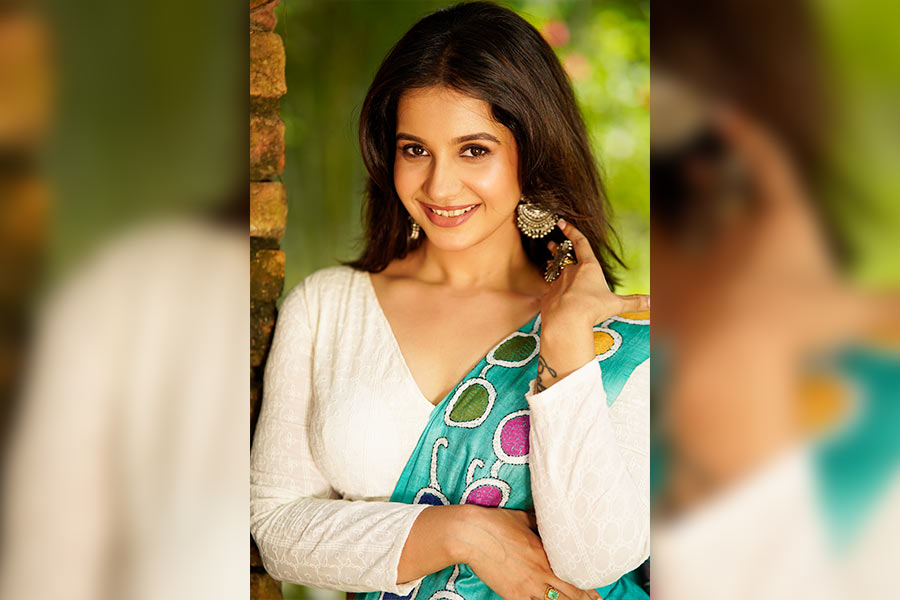
‘I can’t even strike a friendship without meeting someone in person, let alone a romantic relationship,’ says Angana Roy
The foundation of such a relationship will also be shaky. Das cites multiple examples where social media has led to trouble in paradise. “I have heard girlfriends reprimanding boyfriends for not posting enough about their relationship. I have also heard boyfriends telling their girlfriends to not follow random men on Instagram,” Das says, drawing attention to the rampant insecurity among young couples. “It’s great if you’ve found love online, but once the relationship comes into being, the couple needs to move from the reel world to the real world. Your relationship can’t depend on external validation.”
The contention can sometimes directly be a result of social media too. Gurbani opines that with people becoming more vocal about their beliefs online, social media is also eroding people’s ability to hold differing opinions with respect.
Roy further highlights that a relationship that is crumbling because of social media is brittle from within. “If I’m enacting a romantic scene with someone and it makes my partner uncomfortable, we need to have a bigger conversation about trust.” Reflecting upon the lovers’ spats she has seen, Roy explains that social media has a tendency to over-complicate love, which at its essence is simple. “We put layers and filters around what love should be like, and the criteria it should satisfy based on what we see online. But if you have communication and mutual respect, love is simple, just like you would share with your parents or friends.”

Social media personas can undoubtedly make someone appear attractive, but it's essential to remember that people often curate their online presence. This ‘look-good factor’ can be misleading, as individuals tend to share only a fraction of their lives
— Adrika Shaw, 23
Adrika Shaw, a 23-year-old associate communication architect, believes that social media’s primary impact on dating has more cons than pros. “What was once a platform to connect with loved ones has devolved into a playground for casual encounters and fleeting connections. The rise of 'benching' and 'situationships' has left countless individuals feeling disposable, uncertain, and unloved,” said Adrika.
She further added that social media’s emphasis on exploration over commitment has created a culture of emotional detachment, where people are more focussed on swiping right than building meaningful relationships. Adrika says, “The constant stream of curated profiles and seemingly perfect relationships can evoke feelings of inadequacy, low self-esteem, and anxiety. By normalising the 'shop-around' mentality, social media undermines the very foundation of human connection: vulnerability, trust, and intimacy.”
When asked if social media has made it easier or more difficult to find love, Adrika said that, “while it is easier to find potential partners, it doesn't guarantee genuine connections or relationship stability. With countless options at their fingertips, people's attention spans have decreased, and they're less inclined to work through challenges. The mindset has shifted to 'there are other fish in the sea,' rather than nurturing emotional connections. Ultimately, social media has made it easier to find love, but harder to sustain it.”
![‘While it is easier to find potential partners [on social media], it doesn't guarantee genuine connections or relationship stability,’ says Adrika Shaw](https://assets.telegraphindia.com/telegraph/2025/Feb/1739531667_adrika-shaw.jpg)
‘While it is easier to find potential partners [on social media], it doesn't guarantee genuine connections or relationship stability,’ says Adrika Shaw
We also asked if an individual’s social media profile makes them more or less attractive. “Social media personas can undoubtedly make someone appear attractive, but it's essential to remember that people often curate their online presence. This 'look-good factor' can be misleading, as individuals tend to share only a fraction of their lives, hiding vulnerabilities and imperfections. The fear of judgment can be overwhelming, causing people to conceal their true selves,” Adrika said.
Somudro Nandi, 21, a student, noted, “Social media has definitely influenced dating. By enabling people to connect with others online, it often removes barriers like location, and at times, even language. It has broadened the scope for dating significantly. However, it also has its fair share of disadvantages, with issues like phishing and dating scams becoming more common.”
Is it easier or harder to find love in the time of social media? Somudro said, “ In a way, it’s both. One is able to interact with a lot more people, but forming lasting connections is much more difficult. There is also a very performative aspect to these platforms. People put the best versions of themselves out there for the world to see, something that doesn't necessarily reflect their real life.” He further added, “most Instagram profiles are a highlight reel of fun moments and successes and parties and what not, curated to perfection. These online personas can be very different from who they are in the real world, and the dissonance can be jarring to say the least, if not entirely misleading.”
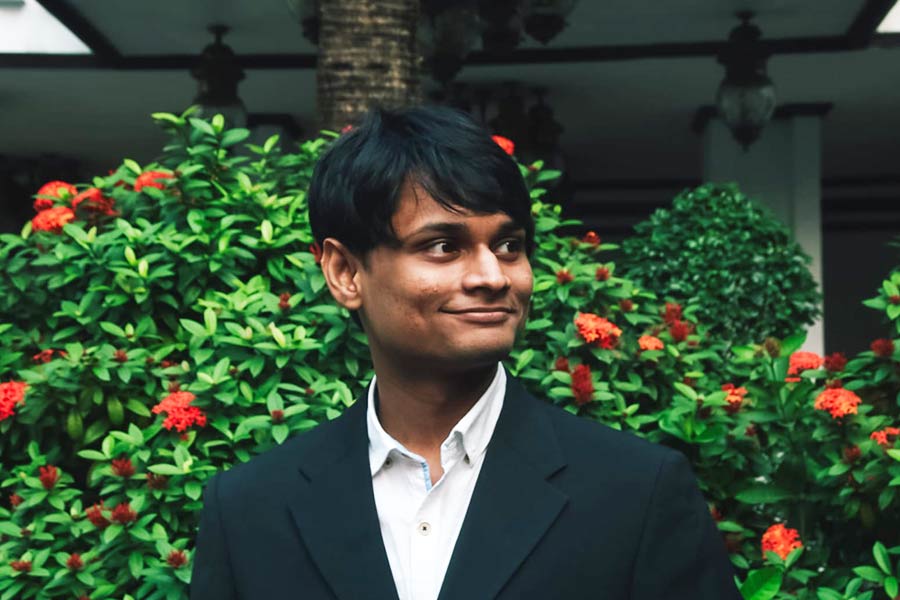
‘Online personas can be very different from who they are in the real world, and the dissonance can be jarring,’ says Somudro Nandi
My Kolkata also spoke to Aman, 25, an account manager, who didn’t want to share his full name. We asked Aman his thoughts on what the primary impact of social media on dating is. “It makes people a lot more accessible. This can have a two-sided impact on dating — for someone who prefers quality time and attention, the accessibility to the person they are dating might be something which helps make the experience better, whereas for someone who cherishes their individuality, they would want to keep the accessibility limited,” he said.
